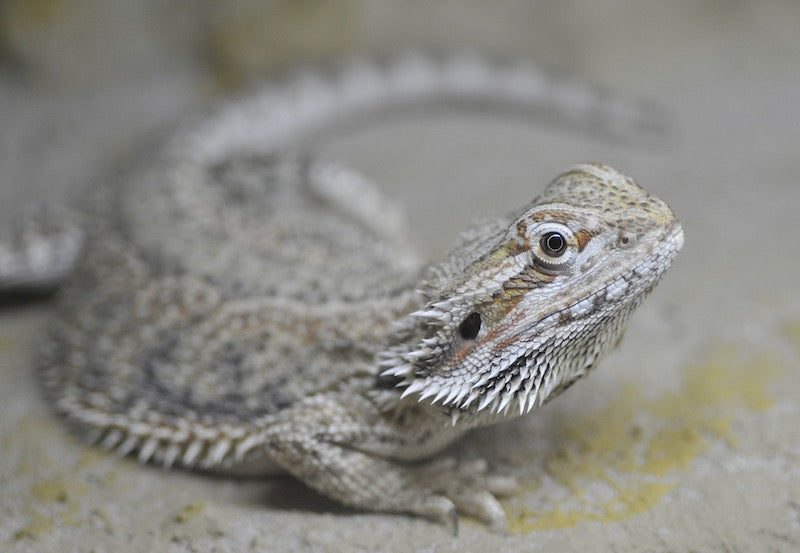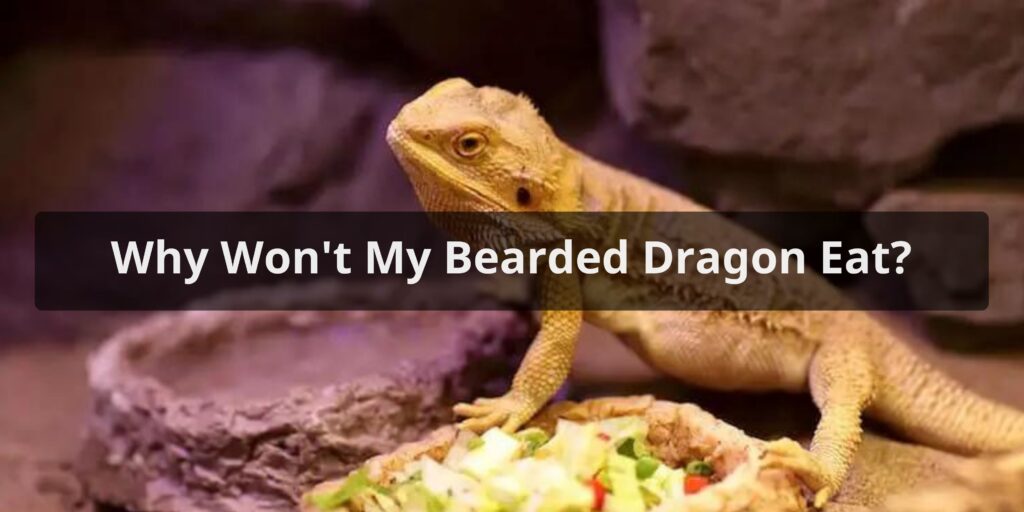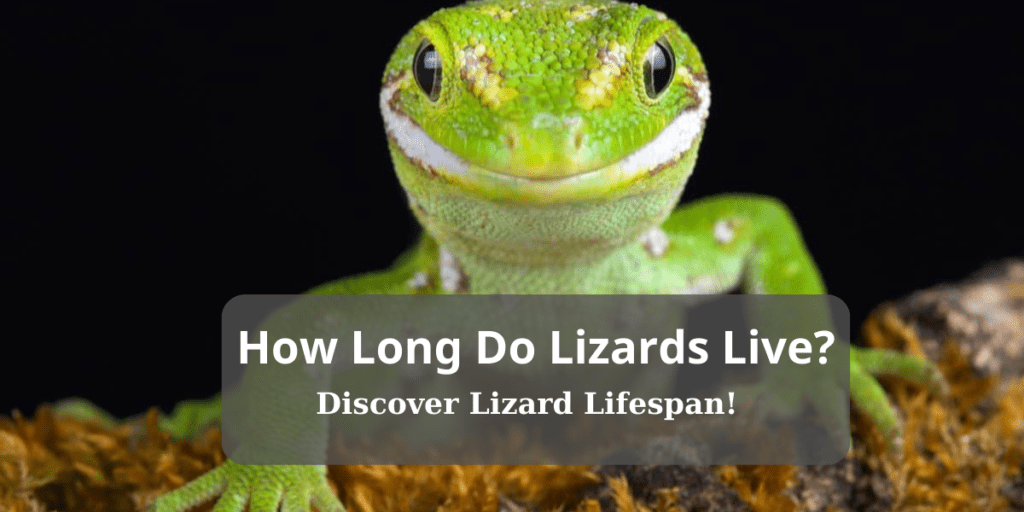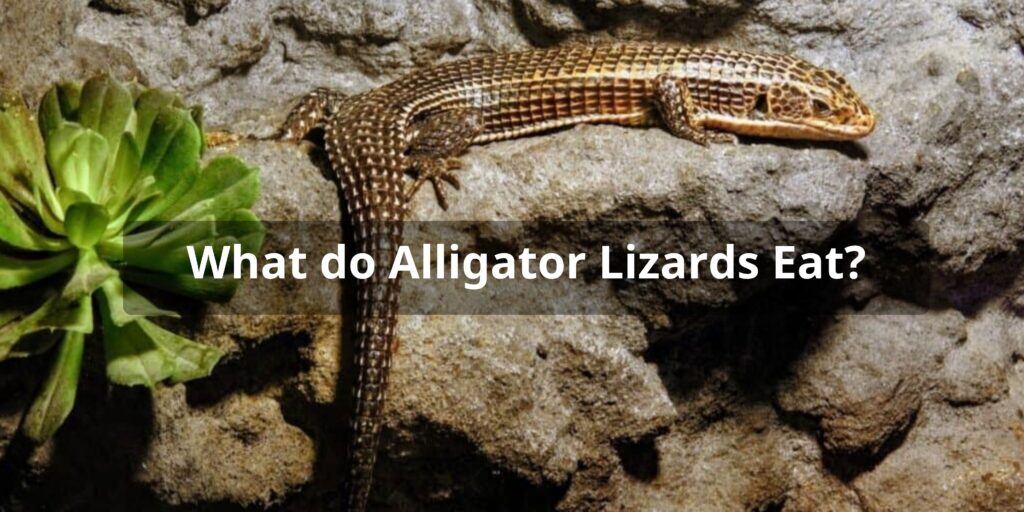Bearded dragons are generally hearty eaters, so it can be concerning when your bearded dragon stops eating. There are several potential reasons for question “why won’t my bearded dragon eat?”. By understanding the possible causes, you can take steps to get your dragon eating again.
Loss of Appetite in Bearded Dragons

There are a few common reasons why a bearded dragon might stop eating:
Brumation
Brumation is a hibernation-like state that bearded dragons enter in response to changing seasons and temperatures. As the temperature drops and hours of daylight decrease, bearded dragons become less active and eat less. This is a natural process, but their appetite can decrease for weeks or even months. As long as your dragon is alert and not losing weight, brumation is usually not a cause for concern. Offer food daily, but don’t force it if your dragon doesn’t seem interested.
Improper Temperatures
Bearded dragons are cold-blooded, so they rely on external heat sources to maintain their body temperature. If the temperature in your dragon’s habitat falls below the proper range, it can cause appetite loss. Daytime temperatures should measure 90-100 F on the warm side, dropping to 70-80 F at night. Use under tank heat mats, ceramic heat emitters and basking bulbs to maintain the ideal temperature range.
Parasites
Intestinal parasites are common in pet bearded dragons. Symptoms include lack of appetite, weight loss, abnormal stools and lethargy. Take a fresh fecal sample to your exotic vet for testing. If parasites are detected, medication can be prescribed. Proper husbandry and sanitation can help prevent future infestations.
Respiratory Infections
Upper respiratory infections may develop from high humidity levels, low temperatures, or unsanitary conditions. Infected dragons often have discharge from the nose or mouth, labored breathing, and loss of appetite. Seek veterinary care for treatment with antibiotics. Improve ventilation and hygiene to support recovery.
Impaction
This condition occurs when an indigestible object gets stuck in a dragon’s digestive tract, blocking the passage of food and causing loss of appetite. Symptoms include lack of defecation and a swollen abdomen. Impaction often results from ingesting improper substrates like sand. Treatment may include hydration therapy, laxatives, and gentle massages of the abdomen. Reptile carpets or paper towels are safer substrates.
Dehydration
Without adequate hydration, a bearded dragon won’t feel like eating. Signs of dehydration include sunken eyes, dry skin, and infrequent urination. Mist the enclosure daily and provide fresh water for drinking and soaking. Fruits and vegetables also supply moisture. Severely dehydrated dragons may need fluid injections from an exotic vet.
Injury or Illness
An injury, metabolic bone disease, mouth rot, parasites, or other health issues can understandably put a bearded dragon off its food. Schedule a veterinary exam for an ill dragon not eating, as lack of nutrition can quickly become life-threatening. Treatment will depend on the specific condition diagnosed.
Encouraging Your Bearded Dragon to Eat

If your bearded dragon is refusing food for any reason, here are some tips to help stimulate its appetite again:
- Carefully monitor temperatures and humidity to ensure optimal habitat conditions. Make any needed adjustments.
- Offer a variety of staple vegetables and fruits with vitamins and moisture. Try greens, squash, berries, melons, etc.
- Dust food with calcium and multivitamin supplements as needed to prevent nutritional deficiencies.
- Try different live feeders if your dragon seems bored. Crickets, roaches, worms, and small chopped veggies may stimulate appetite.
- Gently massage the abdomen and legs to promote digestion and bowel movements.
- Place dragon in a warm bath for 15 minutes to provide hydration.
- Use artificial UVB lighting to mimic day/night cycles if ambient light is low.
- Avoid overhandling or disturbing your dragon if it is in brumation.
- Verify the habitat is free of stressors like loud noise, predators, or enclosure mate aggression.
- See an exotic vet promptly if appetite loss persists beyond a few days, or other symptoms develop.
Conclusion
Lack of appetite in bearded dragons is cause for attention but not necessarily alarm, depending on the circumstances. Monitor your dragon closely and consult a reptile veterinarian if needed. With proper husbandry and quick intervention when required, most dragons will readily regain interest in food within a few days. Maintaining ideal habitat conditions and nutrition is key to keeping your bearded dragon healthy and feeding regularly. They are remarkable pets when cared for properly.
FAQs ABout Why Won’t My Bearded Dragon Eat
What are the common reasons for a bearded dragon’s loss of appetite?
Common reasons for a bearded dragon’s loss of appetite can include brumation (a hibernation-like state), incorrect temperature or lighting, stress, digestive issues, parasites, or dental problems. Identifying the underlying cause is crucial for proper treatment.
How can I determine if my bearded dragon’s lack of appetite is a concern?
If your bearded dragon’s lack of appetite persists for more than a few days, it’s a concern. Additionally, if they show other signs of illness or weight loss, prompt action is necessary. Monitoring their behavior, weight, and consulting a reptile veterinarian is advisable.
Are there specific environmental factors that can affect a bearded dragon’s appetite?
Yes, environmental factors such as incorrect temperature, inadequate UVB lighting, overcrowded or stressful enclosures, or changes in their habitat can affect a bearded dragon’s appetite. Maintaining proper environmental conditions is crucial for their well-being and appetite.
What are some strategies to encourage my bearded dragon to eat again?
Strategies to encourage your bearded dragon to eat again include offering a variety of foods, ensuring proper temperature and lighting, providing a calm and stress-free environment, and hand-feeding if necessary. Additionally, consult with a reptile veterinarian for guidance.
When should I seek veterinary assistance for my bearded dragon’s loss of appetite?
Seek veterinary assistance if your bearded dragon’s loss of appetite persists for more than a few days, if they exhibit other concerning symptoms, or if they experience rapid weight loss. A reptile veterinarian can diagnose and treat underlying health issues.
What role does temperature and lighting play in a bearded dragon’s appetite?
Proper temperature and UVB lighting are crucial for a bearded dragon’s appetite and overall health. Temperature and lighting impact their metabolism, digestion, and behavior. Inadequate heat or UVB exposure can lead to reduced appetite, lethargy, and health problems.
How can I ensure my bearded dragon is receiving proper nutrition even when not eating regularly?
To ensure your bearded dragon receives proper nutrition when not eating regularly, offer a balanced diet, provide access to clean water, and use reptile vitamin and mineral supplements. Consult with a reptile veterinarian for dietary recommendations and guidance on meeting their nutritional needs.




